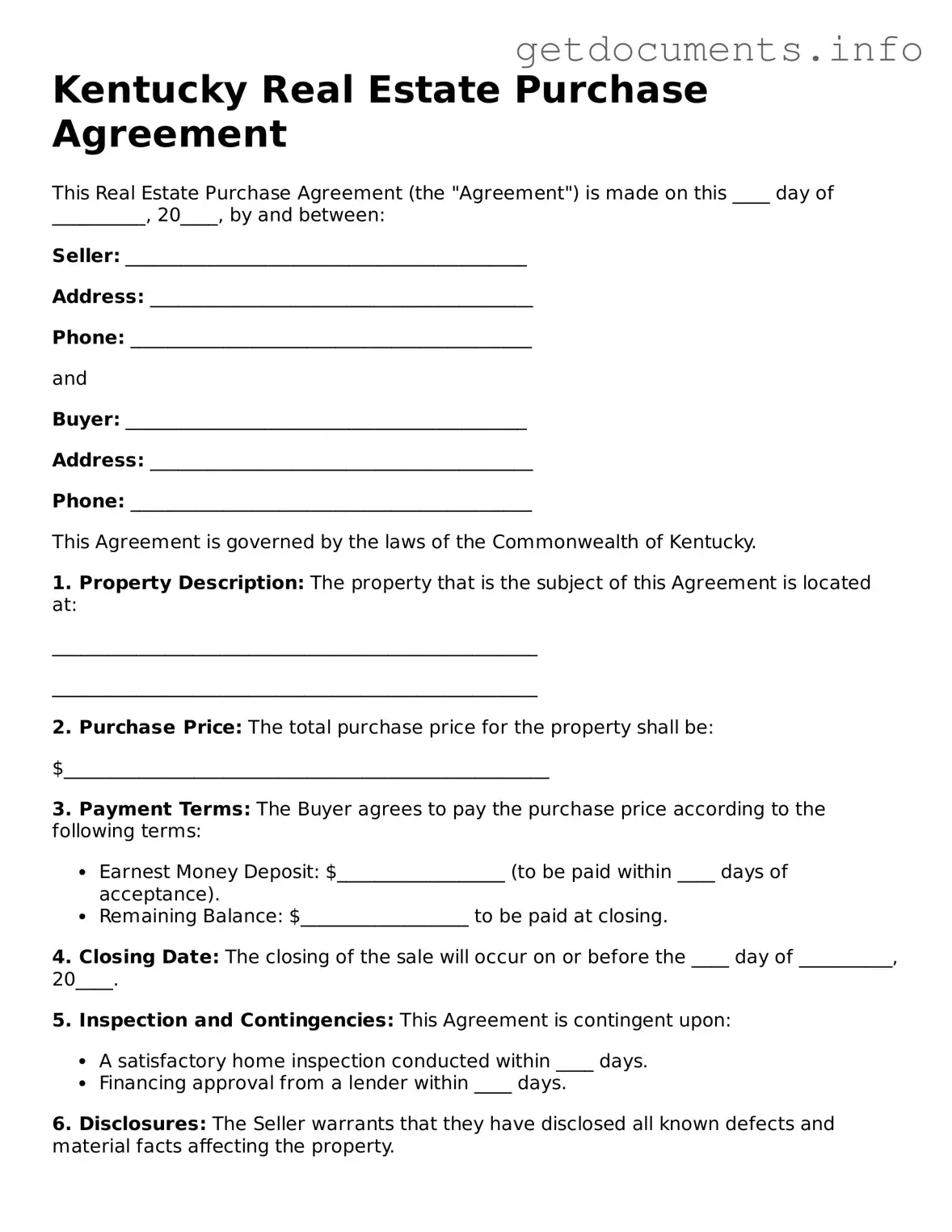Free Real Estate Purchase Agreement Template for Kentucky
The Kentucky Real Estate Purchase Agreement form is a legal document used to outline the terms of a property sale in Kentucky. This agreement serves as a crucial tool for both buyers and sellers, detailing essential aspects such as price, contingencies, and closing dates. To get started on your property transaction, fill out the form by clicking the button below.
Access Real Estate Purchase Agreement Editor

Free Real Estate Purchase Agreement Template for Kentucky
Access Real Estate Purchase Agreement Editor
Got places to be? Complete the form fast
Fill out Real Estate Purchase Agreement online and avoid printing or scanning.
Access Real Estate Purchase Agreement Editor
or
⇩ PDF File
